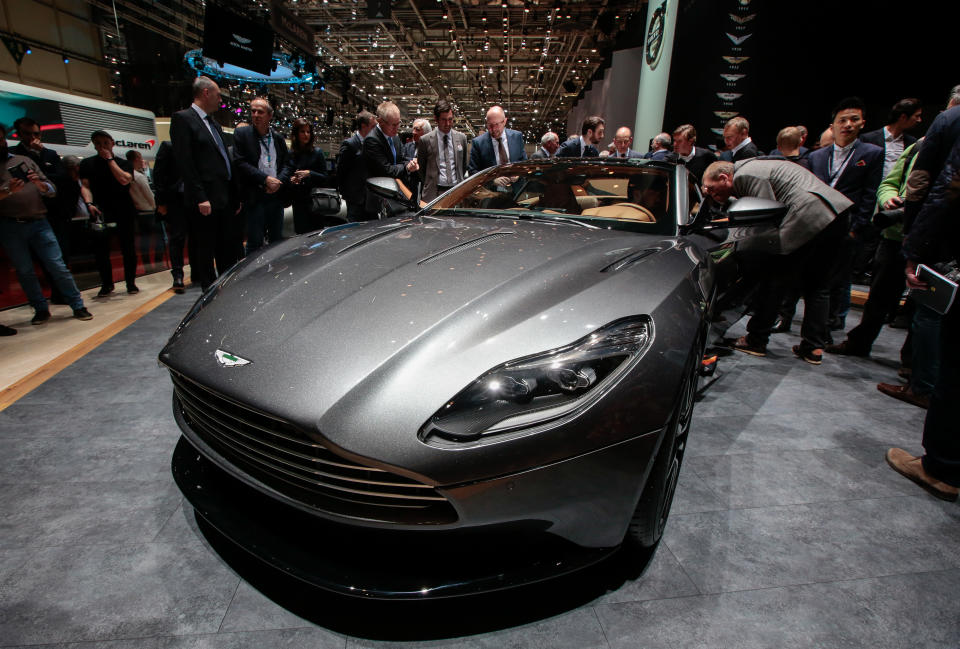Aston Martin shines amid the UK auto wreckage
UK automakers have navigated a rough road recently. Yet premium British brand Aston Martin is speeding towards a high-profile public listing in London early next month, targeting a £5.1bn ($6.8bn) valuation.
This comes as Brexit has slammed industry investment and executives worry about new 10% tariffs between the UK and EU in early 2019. The UK’s plans for stricter diesel regulations have led to a 32% slide in domestic diesel sales in 2018. And US President Donald Trump has threatened tariffs against European automakers, contributing to a 10% decline in the STOXX Europe 600 Automobiles & Parts index this year.
On top of it all, shifting consumer tastes are forcing auto manufacturers around the world to kill off car models, rework their offerings to include more SUVs, and plan for more electric and self-driving vehicles.
Amid all this, Volvo Cars pulled out of its planned public offering this month, blaming general market instability.
But experts maintain that Aston Martin is different. They say the firm’s wealthy customers will keep buying its pricey, exclusive cars regardless of tariff-induced price hikes or even the threat of an economic slowdown.
As for Brexit?
“I don’t think it matters, to be quite honest,” Michael Hewson, chief market analyst at CMC Markets, told Yahoo Finance UK. “Someone who can afford an Aston Martin doesn’t care so much about [higher costs due to tariffs] … I would suggest there’s quite significant growth [opportunities] there for Aston Martin, Brexit notwithstanding.”
Hewson pointed to Ferrari (RACE) – with a market capitalisation of nearly $26bn – as an example of what is achievable in the luxury car space. Shares have more than doubled since the firm’s public listing in 2015.
Aston Martin’s chief executive Andy Palmer brushed off the threat of new tariffs in an interview with Reuters.
“If there are [Brexit-induced] tariffs … for every car we lose because of a 10% tariff into Europe, we presumably pick up from Ferrari and Lamborghini in the other direction because obviously their cars become more expensive in the UK,” he said.
Aston Martin, which builds all its cars in Britain, said the company had boosted its stock of engines and components in case frictionless trade with the European Union ends in March 2019.
“We [have] up to five days of engine stock for example and we’ve got a very large warehouse in Wellesbourne (in central England) where we have at least five days of car stock,” he said.

While it’s famous for supplying James Bond’s cars, Aston Martin has had its share of difficulties and has been through multiple bankruptcies.
Palmer is credited with recently turning things around, helping the firm bring in £876m ($1.2bn) in revenue in 2017, up more than 71% from 2015. The company has also branched out into other luxury projects, including real estate and ultra-exclusive submarines, to diversify its sales.
Still, many have expressed reservations about its projected valuation of £4bn to £5.1bn.
“The suggested valuation seems over optimistic,” said David Bailey, professor of industrial strategy at Aston University in the UK.
“Don’t get me wrong: I’m greatly impressed with what Aston Martin has done of late, but that’s a very recent [turnaround for] a firm with a poor long-term track record on profitability. The cars also sell at much lower prices than Ferrari, so the brand will have to shift upmarket even further in a big way to justify such a valuation,” he said.

 Yahoo Finance
Yahoo Finance 